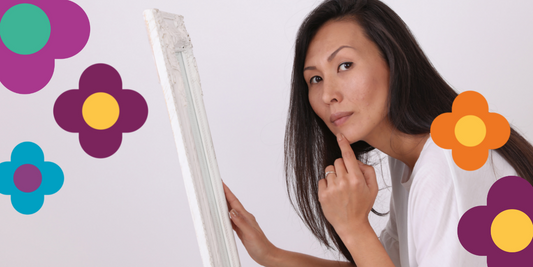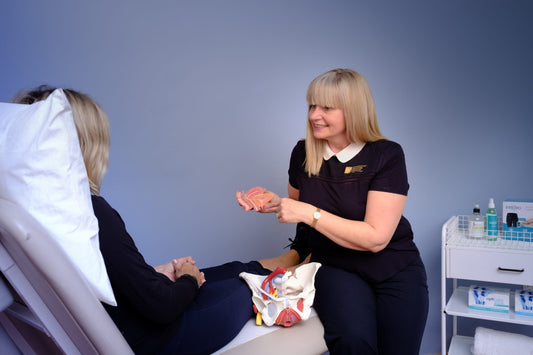It’s time to let go of the myths!
We’re taking the time to make sure you know that they are just myths and not true. Continue reading for 7 period myths debunked!
Period myths, we’ve heard them all.
From getting attacked by sharks to passing out from blood loss, having a period, unfortunately, means we are all privy to some fairly ridiculous urban legends.
Joking aside, however, in certain parts of the world, menstruation-related taboos can be seriously debilitating and isolating. Women worldwide are being shunned by their community and forced to feel shameful about their period.
Closer to home, there are still myths we need to debunk. Here, we take a look at 7 period myths debunked!
If you want to know more about your menstrual health be sure to check out our other article on what PMS is.
1) Periods restricts what you can do
Periods are not a disability, and they are certainly not a weakness. There is little that we cannot do on our period.
Exercise has been proven to positively affect our menstrual cycle symptoms – rather than being something to avoid.
In contrast, the dopamine and endorphins released during exercise can positively affect your overall mood. They can help alleviate some of the crampings that may accompany your period.
2) You lose a lot of blood
We often overestimate how much blood we lose each month during our period.
Menstruation varies from person to person, but on average, we lose about two or three tablespoons per cycle, less than 45ml.
Even those who experience heavy periods will only release an average of four tablespoons of blood.
It’s important to note that if you do feel faint, dizzy or bleed for more than seven days, be sure to check in with your doctor.
3) You can’t get pregnant
Period sex can be a divisive matter. For some people, it’s a regular part of their sex lives; for others, it’s a messy no, no. Whatever your stance, it is important to be aware that while the likelihood is low, you can never be 100% sure that you will not get pregnant during your period.
Sperm can live inside your body for up to 72 hours, which means that sex during this timeframe doesn’t guarantee your egg won’t be fertilised so.
4) Women get their periods at the same time
While anecdotally plenty of women claim this is true – women who live with pretty quickly all get their periods at the same time – it’s unfortunately proven to be untrue.
It’s all based on an incorrect theory that when you contact another woman, your pheromones influence each other so that eventually, your monthly cycles line up.
Recent studies – including from Oxford University – have debunked the idea altogether.
What’s more likely to happen is that out of a group of women, there’s bound to be a few who have cycles at the same time and many others that have overlapping cycles.
5) Women should hide periods
In some cultures, menstruation is viewed as ‘unclean’. Women are still shunned and segregated because of their periods.
Closer to home, we still see women shuffle to the office bathroom with a tampon or pad up their sleeve. According to one survey by Plan International, 55% of girls in Ireland admitted feeling embarrassed about their period.
So, what can we do? Increased education, open conversation, and ditching euphemisms for the word period are the first steps in normalising menstruation.
6) PMS Symptoms are atypical
Bloating, cravings, cramping, low mood, low energy, irregular cycles. Does any of this sound familiar?
According to research, this is a reality for 90% of women every month! So don’t think that your side-effects are just ‘unlucky’. Look at KeyForHer’s menstrual products, too, to see if they can help make your periods more manageable.
7) There is nothing you can do about cramps
The body releases chemicals called prostaglandin during our period, which causes our uterus to contract, leading to painful cramps.
Far from being ‘nothing, you can do’ – a healthy diet, gentle exercise, and adequate rest can do wonders.
Supplements also play a big part, considering that few get the required nutrients we need from diet alone.
KeyForHer ingredients include:
Magnesium supports the normal functioning of the nervous system and muscles and has been shown to calm uterus contractions, leading to menstrual cramps.
Ginger is well-known for its calming and warming effect on the body and may help reduce cramps and nausea experienced by many during their period.
Green Tea Extract some studies have shown that eliminating caffeine may help to relieve menstrual pain. Hydration is key to easing menstrual cramps. Green tea has antioxidants and will keep you hydrated.
Black Pepper and ginger have been shown to lower the cramp-inducing chemicals and prostaglandins.
Read more about our natural ingredients for menstrual symptoms.
Remember that if your period cramps seem severe or you cannot get relief, ensure to check in with your GP.













